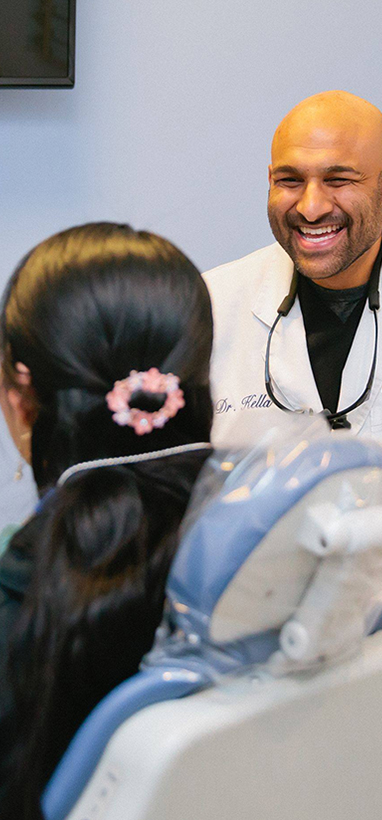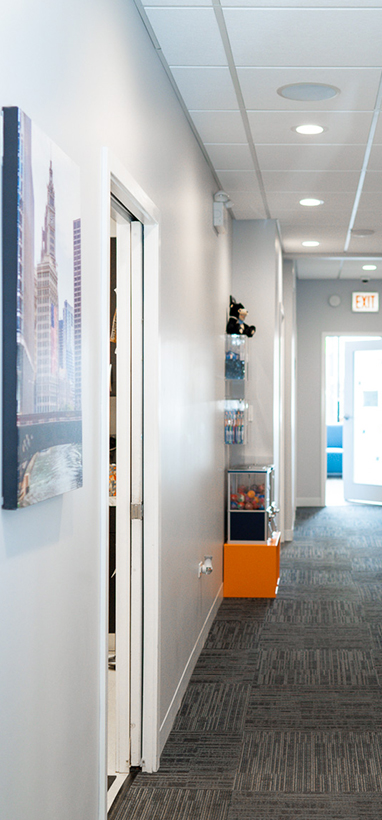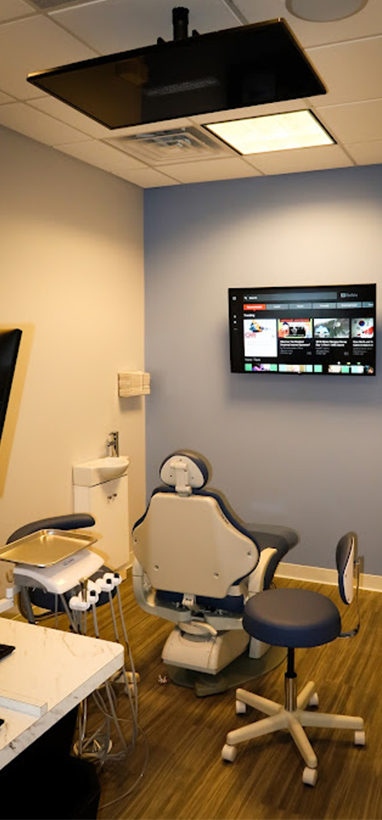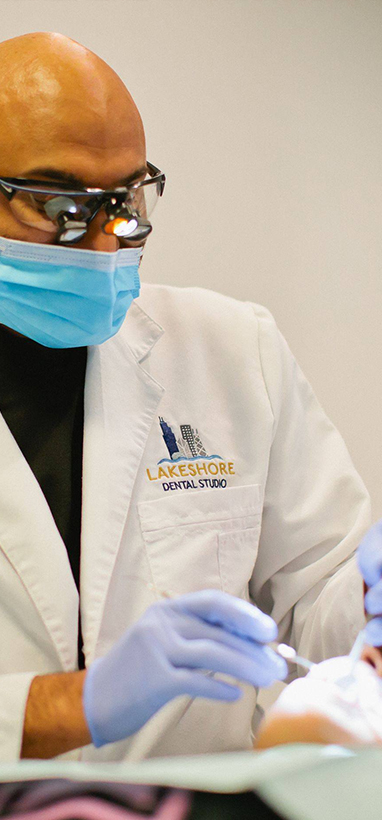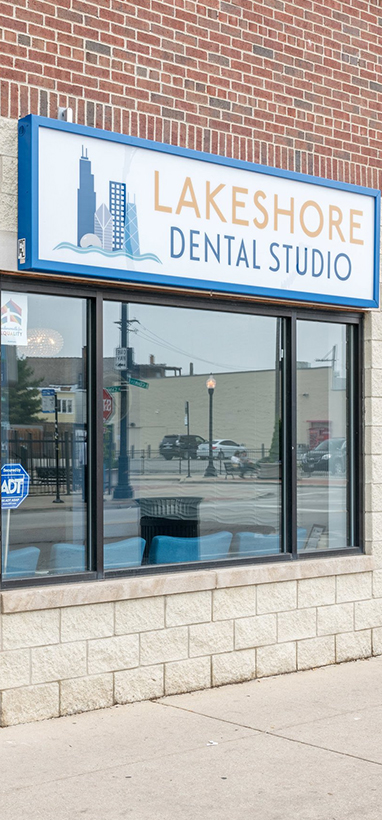5505 N. Clark Street Chicago, IL 60640

How Many Days Should You Rest After Getting a Dental Implant?

Dental implants have become a popular and effective solution for replacing missing teeth, offering a natural appearance and long-lasting functionality. However, like any surgical procedure, getting a dental implant requires a period of recovery. One of the most common questions patients have is, “How many days should I rest after getting a dental implant?” Understanding the recovery process and knowing how much rest is needed can help ensure a successful outcome. This blog post will guide you through the essential aspects of dental implant recovery, including how long you should rest, what to expect during the healing process, and tips for a smooth recovery.
What Is a Dental Implant?
Before diving into the recovery process, it’s essential to understand what a dental implant is and how the procedure works. A dental implant is a titanium post that is surgically placed into the jawbone to serve as a replacement for a missing tooth root. Once the implant has been securely positioned, it fuses with the jawbone through a process called osseointegration, providing a stable foundation for a crown, bridge, or denture.

The Dental Implant Procedure: What to Expect
The dental implant procedure typically involves several stages, each requiring a certain level of recovery. Here’s a brief overview of the process:
- Initial Consultation and Planning: Your dentist or oral surgeon will evaluate your oral health, take X-rays, and create a treatment plan tailored to your needs.
- Tooth Extraction (if necessary): If the damaged tooth is still in place, it will be extracted before the implant can be inserted. This step may require a few days of rest.
- Bone Grafting (if necessary): In some cases, patients may need a bone graft to ensure there is enough bone to support the implant. This procedure requires additional healing time before the implant can be placed.
- Implant Placement: The titanium post is surgically placed into the jawbone. This is the most crucial step and the one that typically requires the most rest.
- Healing and Osseointegration: After the implant is placed, it needs time to heal and integrate with the bone. This period can last several months, but rest is primarily needed in the initial days following surgery.
- Abutment Placement: Once the implant has integrated with the bone, an abutment is placed on top of the implant to connect it to the prosthetic tooth.
- Crown Placement: Finally, a custom-made crown is attached to the abutment, completing the restoration.
How Long Should You Rest After Dental Implant Surgery?
The amount of rest required after getting a dental implant varies depending on several factors, including the complexity of the procedure, your overall health, and how well you follow post-operative care instructions. Here’s a general guideline for how many days you should rest after getting a dental implant:
1. The First 24-48 Hours: Critical Rest Period
The first 24-48 hours after dental implant surgery are the most critical. During this time, you should prioritize rest and avoid any physical activities. Here’s what to expect:
- Pain and Discomfort: It’s common to experience some pain, swelling, and discomfort during the first couple of days. Your dentist will likely prescribe pain medication to manage this.
- Bleeding: Slight bleeding is normal within the first 24 hours. Biting down on gauze can help control it.
- Diet: Stick to soft foods and avoid anything that requires chewing. Hydration is important but avoid hot drinks and alcohol.
- Head Elevation: Keep your head elevated, even while sleeping, to minimize swelling.
- No Smoking or Alcohol: These can interfere with healing and should be avoided.
2. Days 3-7: Gradual Return to Normal Activities
After the first two days, you can start to gradually return to normal activities, but with caution:
- Swelling and Bruising: Swelling should begin to decrease, but it may take up to a week to fully subside. Bruising may also appear around the surgical site.
- Physical Activity: Light activities like walking are fine, but avoid strenuous exercise, bending over, or heavy lifting, as these can increase blood pressure and lead to complications.
- Diet: Continue eating soft foods. Gradually introduce more solid foods as your comfort level increases, but avoid anything hard, crunchy, or sticky.
- Oral Hygiene: Maintain good oral hygiene, but be gentle around the surgical site. Your dentist may recommend a salt water rinse to keep the area clean.
3. Week 2 and Beyond: Resuming Normal Activities
By the second week, most patients can return to their normal daily routines:
- Pain and Discomfort: Any lingering pain or discomfort should be minimal by this point. If you experience severe pain or signs of infection, contact your dentist immediately.
- Physical Activity: You can resume most physical activities, but it’s still wise to avoid any activity that could potentially impact the surgical site.
- Diet: You can start to eat a more varied diet, but continue to avoid very hard or sticky foods until your dentist gives you the all-clear.
- Follow-Up Visits: Attend all follow-up appointments so your dentist can monitor the healing process and ensure the implant is integrating properly.
Tips for a Smooth Recovery After Dental Implant Surgery
To ensure a successful recovery and reduce the amount of rest needed after dental implant surgery, consider the following tips:
1. Follow Post-Operative Care Instructions
Your dentist will provide specific instructions for post-operative care. Follow these carefully to avoid complications.
2. Take Prescribed Medications
Take all prescribed medications, including pain relievers and antibiotics, as directed to manage discomfort and prevent infection.
3. Rest and Sleep Well
Getting plenty of rest and sleep is essential for the healing process. Keep your head elevated to reduce swelling.
4. Maintain Good Oral Hygiene
Keep your mouth clean to prevent infection. Use a soft-bristled toothbrush and avoid the surgical site when brushing.
5. Eat a Soft Diet
Stick to a soft diet for the first few days. Foods like yogurt, mashed potatoes, smoothies, and soup are good options.
6. Avoid Strenuous Activities
Avoid any activities that could increase blood pressure or cause trauma to the surgical site, such as heavy lifting, bending over, or vigorous exercise.
7. Stay Hydrated
Drink plenty of water, but avoid hot beverages, alcohol, and drinks with a high sugar content.
8. Attend Follow-Up Appointments
Regular follow-up visits are essential to monitor the healing process and ensure the implant is integrating properly.
When to Contact Your Dentist
While most patients recover from dental implant surgery without complications, it’s important to know when to contact your dentist. Seek immediate medical attention if you experience any of the following:
- Severe pain that does not improve with medication
- Excessive bleeding that doesn’t stop after applying pressure
- Signs of infection, such as increased swelling, redness, or pus
- A fever that persists beyond the first 48 hours
- Numbness or tingling in the lips, chin, or tongue that doesn’t go away
Resting after getting a dental implant is crucial for ensuring a smooth recovery and the long-term success of the implant. While the first 24-48 hours require the most rest, the overall recovery time can vary depending on several factors, including the complexity of the procedure and your overall health. By following your dentist’s post-operative care instructions and taking the necessary precautions, you can help speed up the healing process and return to your normal activities in no time. Remember, every patient’s recovery is unique, so it’s important to listen to your body and give yourself the time needed to heal properly.
If you have any concerns about your recovery or if something doesn’t feel right, don’t hesitate to reach out to your dentist. Proper care and rest are key to a successful dental implant and a healthy smile for years to come.







